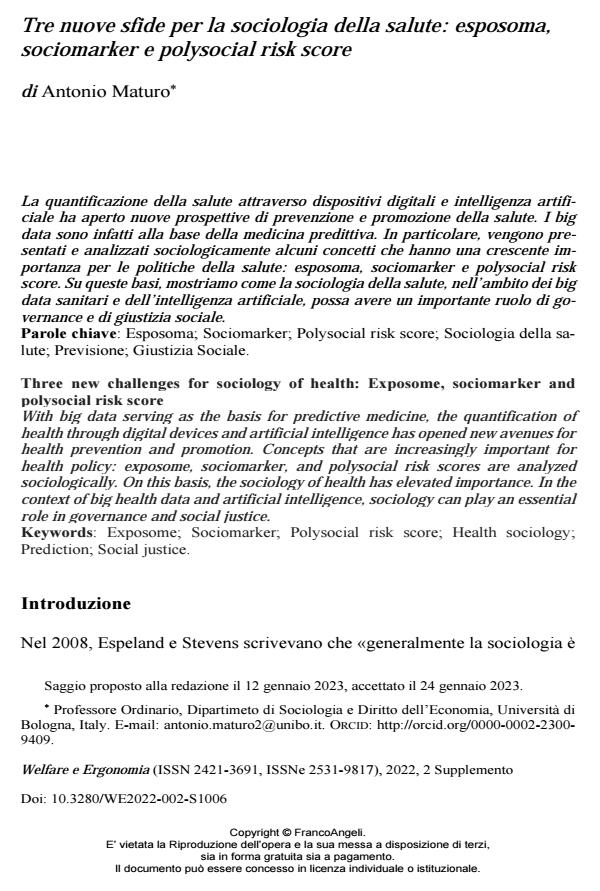Tre nuove sfide per la sociologia della salute: esposoma, sociomarker e polysocial risk score
Titolo Rivista WELFARE E ERGONOMIA
Autori/Curatori Antonio Maturo
Anno di pubblicazione 2023 Fascicolo 2022/2 Suppl.
Lingua Italiano Numero pagine 14 P. 63-76 Dimensione file 343 KB
DOI 10.3280/WE2022-002-S1006
Il DOI è il codice a barre della proprietà intellettuale: per saperne di più
clicca qui
Qui sotto puoi vedere in anteprima la prima pagina di questo articolo.
Se questo articolo ti interessa, lo puoi acquistare (e scaricare in formato pdf) seguendo le facili indicazioni per acquistare il download credit. Acquista Download Credits per scaricare questo Articolo in formato PDF

FrancoAngeli è membro della Publishers International Linking Association, Inc (PILA), associazione indipendente e non profit per facilitare (attraverso i servizi tecnologici implementati da CrossRef.org) l’accesso degli studiosi ai contenuti digitali nelle pubblicazioni professionali e scientifiche.
La quantificazione della salute attraverso dispositivi digitali e intelligenza arti-ficiale ha aperto nuove prospettive di prevenzione e promozione della salute. I big data sono infatti alla base della medicina predittiva. In particolare, vengono presentati e analizzati sociologicamente alcuni concetti che hanno una crescente importanza per le politiche della salute: esposoma, sociomarker e polysocial risk score. Su queste basi, mostriamo come la sociologia della salute, nell’ambito dei big data sanitari e dell’intelligenza artificiale, possa avere un importante ruolo di governance e di giustizia sociale.
Parole chiave:Esposoma; Sociomarker; Polysocial risk score; Sociologia della salute; Previsione; Giustizia Sociale.
Antonio Maturo, Tre nuove sfide per la sociologia della salute: esposoma, sociomarker e polysocial risk score in "WELFARE E ERGONOMIA" 2 Suppl./2022, pp 63-76, DOI: 10.3280/WE2022-002-S1006